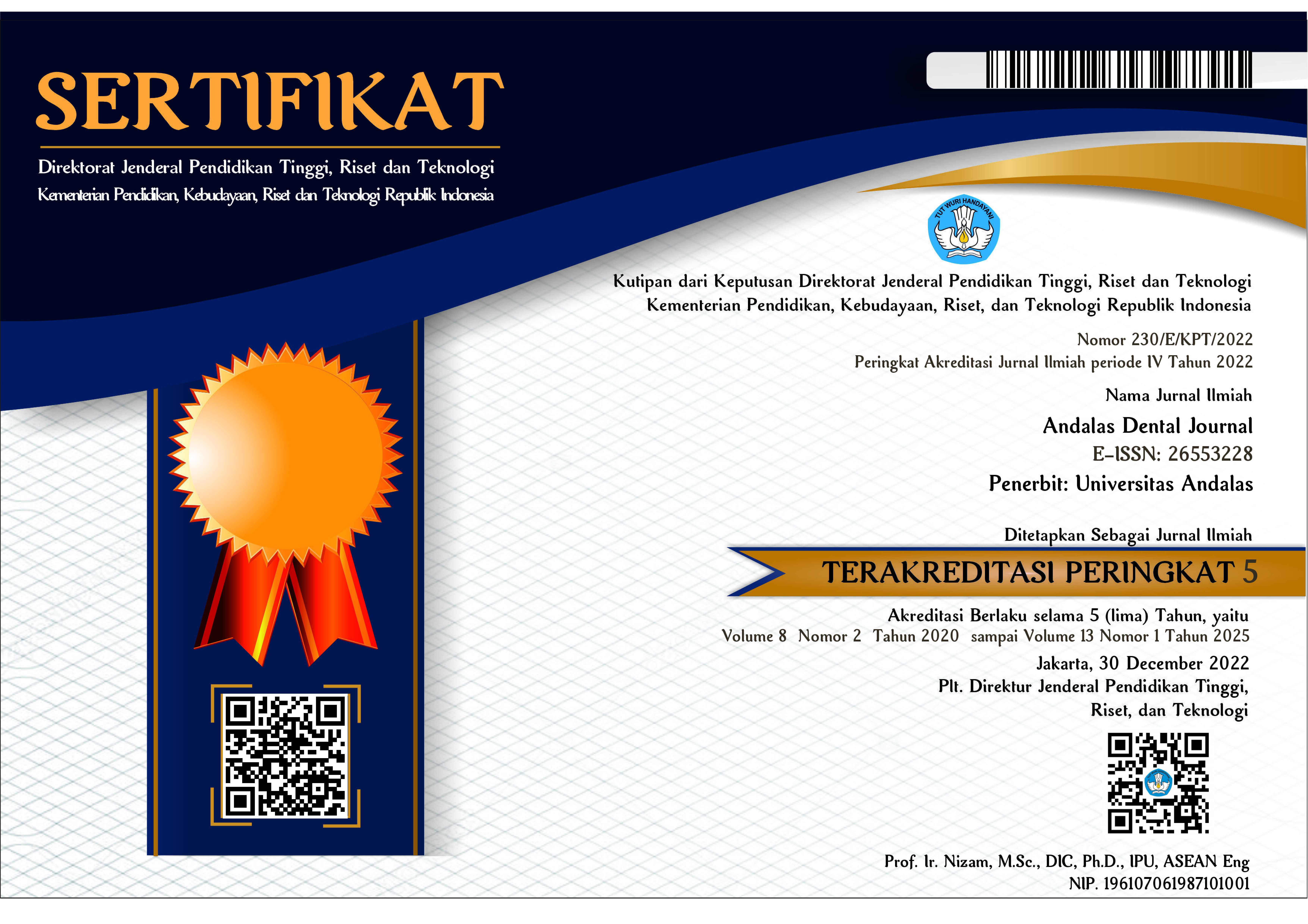Pengaruh Perendaman Jus Jeruk Terhadap Kekuatan Tekan Glass Ionomer Cement dan Resin Modified Glass Ionomer Cement
Abstract
Glass ionomer cement and resin modified glass ionomer cement are one of the restoration materials that are widely used by dentists. Its presence in the oral cavity causes glass ionomer cement and resin modified glass ionomer cement often in contact with food and beverages such as tangerine juice which can affect the compressive strength. The purpose of this study is to determine the effect of immersion in tangerine juice towards the compressive strength of glass ionomer cement and resin modified glass ionomer. This study was a true experimental with a post test only with control group design. Samples were made from GC Fuji 9 GP and GC Gold Label 2 LC with 36 samples each. Samples were divided into two groups. The first group (18 samples of GC Fuji 9 GP and 18 samples of GC Gold Label 2 LC) was immersed in tangerine juice for 24 hours in an incubator at 37°C. The second group (18 samples of GC Fuji 9 GP and 18 samples of GC Gold Label 2 LC) as a control was immersed in artificial saliva for 24 hours in an incubator at 37°C. The compressive strength was determined using a compression machine. The results showed that the mean compressive strength of glass ionomer cement immersed in tangerine juice was 14,03±0,48 MPa and immersed in artifical saliva was 52,08±0,67 MPa. The mean compressive strength of resin modified glass ionomer cement immersed in tangerine juice was 58,98±0,97 MPa and immersed in artifical saliva was 68,28±0,67 MPa. Data were analyzed with Independent T-test showing the results of p<0.05. The conclusion of this study was that there was an effect of immersion in tangerine juice towards the decreasing of the compressive strength of glass ionomer cement and resin modified glass ionomer cement.
Copyright (c) 2021 Claudia Florencita Ediharsi, Dedi Sumantri, Arymb Pujiastuty

This work is licensed under a Creative Commons Attribution-ShareAlike 4.0 International License.















